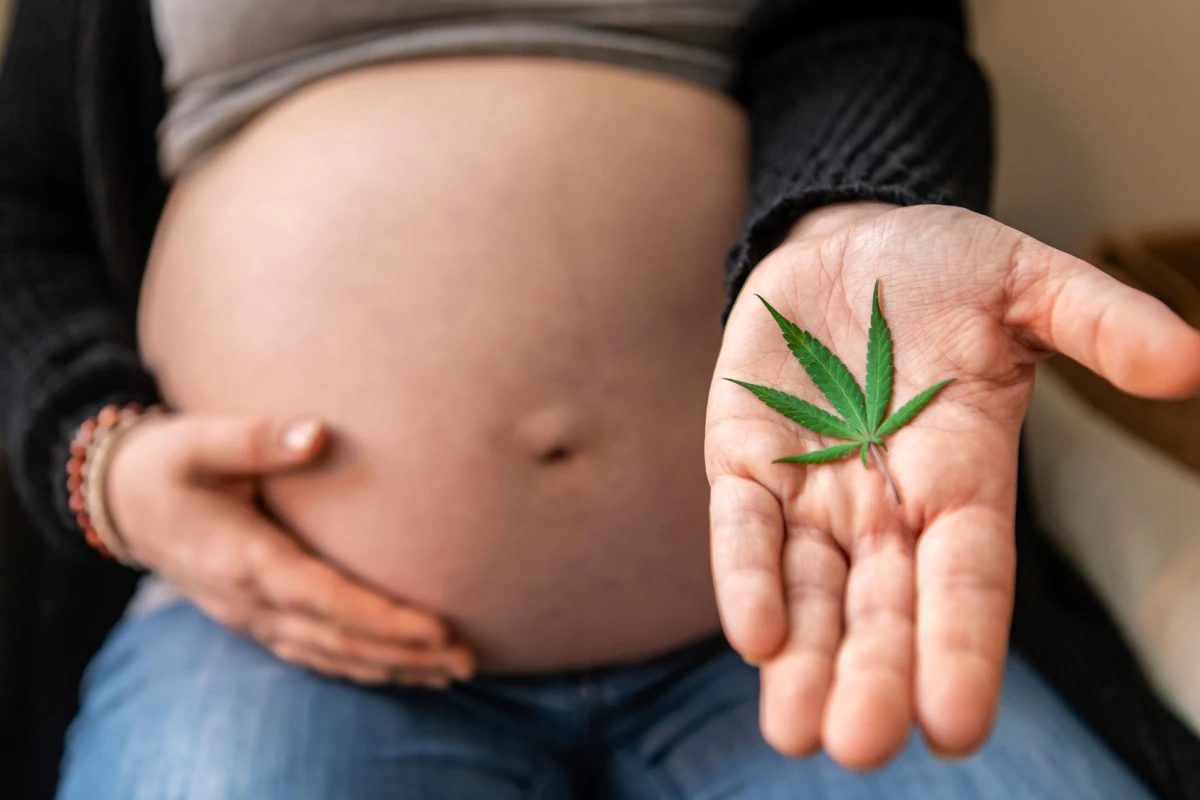Because it doesn’t produce perception-altering effects like THC does, cannabidiol (CBD), one of the active ingredients in cannabis, is deemed to be safe. Indeed, it’s been shown to be an effective treatment for a wide variety of health issues, from reducing epileptic seizures to treating inflammation.
Indicative of public belief about the safety of CBD, recently published research using data from the International Cannabis Policy Study found that one in five pregnant women (20.4%) in the US and Canada were using CBD-only products compared to 11.3% of non-pregnant women. Reasons for use included anxiety and depression, pain, headache, and morning sickness.
However, new research presented at the Federation of European Neuroscience Societies (FENS) Forum 2024, currently being held in Vienna, suggests that using CBD during pregnancy may not be as safe as it’s considered to be.

“Scientific evidence has proven that CBD crosses the placenta, can reach the brain of rodents and human embryos and is also present in breast milk; therefore, it’s a public health priority to understand the impact of CBD on the developing nervous system as we don’t yet know the consequences of CBD exposure to the brain during development,” said Alba Caceres Rodriguez, a PhD student at INSERM Aix-Marseille University, a French public research organization that focuses on human health. “An important part of the research we are conducting in mice is longitudinal follow-up of the behavioral consequences of gestational exposure to CBD, and we are also investigating what is happening to the neurons in the brain that may be the basis of such changes in behavioral traits.”
The researchers administered a low dose of CBD (3 mg/kg) to pregnant mice by an injection under the skin from days five to 18 of the gestational period, more than two-thirds of pregnancy. Injecting the CBD, rather than administering it orally, ensured that each mouse received the same concentration. Another group of pregnant mice did not receive CBD and acted as controls.
Pups born to both groups of mice were tested once they reached adulthood. The researchers placed the mice in a new environment, and their social interactions were monitored with Live Mouse Tracker, software that uses a depth-sensing camera and machine learning to analyze the behavior of groups of mice in real-time. The results suggested that CBD altered specific mice behaviors and was sex-dependent.
“We found a number of behavioral changes among the mice exposed to CBD,” Caceres Rodriguez said. “CBD-exposed females tended to move around their new environment more compared to females that didn’t receive CBD during gestation. Furthermore, compared to control mice, both male and female mice treated with CBD established more physical contacts with each other.”
Examining the mice’s brains, the researchers found changes in two parts of the insular cortex (IC), the brain’s ‘integration hub’: the anterior IC (aIC), responsible for processing emotional and social signals, and the posterior IC (pIC), which processes pain perceptions and the body’s physical and emotional state.

“Our results reveal that prenatal exposure to CBD profoundly changes the functionality of neurons in the insular cortex,” Iezzi said. “We saw differences according to sex and also according to IC sub-regions. In particular, pyramidal neurons in the pIC lose their cellular identity following prenatal exposure to CBD and no longer behave like typical pIC neurons. This could have negative consequences on specific functions of the pIC. These neurons specialize in integrating sensory information from the environment and the internal state of the body in order to generate an appropriate behavioral response. Therefore, a loss of pIC differentiation following prenatal exposure to CBD can have a considerable impact on the ability to understand and react properly to the environment.”
The study’s findings advance our understanding of the effect of CBD use on the developing fetus and challenge the belief that it’s safe for pregnant women, the researchers say.
“These findings have significant implications for understanding the effects of CBD on fetal life, changing the general idea that CBD is a universally safe compound, and revealing the need for additional studies on the effect of prenatal CBD exposure,” said Iezzi. “Furthermore, several studies have shown that IC disfunction increases the risk of developing psychiatric disorders, including anxiety, addiction, depression and schizophrenia.”
One of the study’s limitations is that the mice were given a controlled dose of CBD, whereas human females may be more likely to use CBD intermittently throughout their pregnancy as needed to help with symptoms such as morning sickness. They might also take considerably larger doses than those given to the mice.
Nonetheless, the researchers say a strength was the study's naturalistic approach.
“A strength of our study is that we are able to reproduce a more naturalistic environment, which permits us to study group dynamics that would be impossible to unmask with other conventional task-based tests,” said Caceres Rodriguez. “This study serves as a good starting point to dive deeper to understand the actual consequences of these changes in overall social interactions in the long term.”
This research has only been presented at the FENS Forum 2024 and hasn’t been published or peer-reviewed yet.
Source: INSERM Aix-Marseille Université via Scimex






